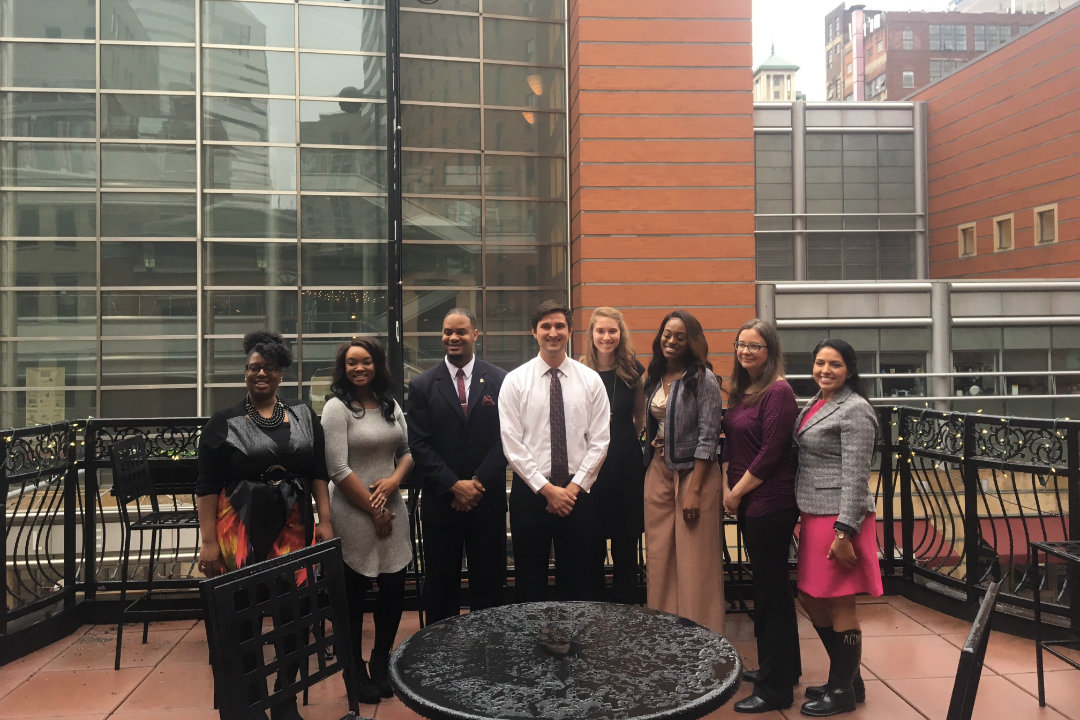For Notable School Psychologist, Mental Health Matters Now More than Ever


James M. Loy, Miami University
In an environment where school-aged children can sometimes feel the pressures of rapid physical, emotional, and academic development, a day rarely unfolds the same way twice. But that’s just the nature of problem- solving in schools today.
“That’s what really appeals to me about being a school psychologist,” says Jeff Lyman. “There are a wide variety of roles whether that’s working with kids individually, meeting with teachers and parents to collaborate together, and working with families to ensure that no matter what problem comes up, we’ll be able to find some creative solution.”
 Lyman is a school psychologist who works with third, fourth, and fifth graders at Oak Hills Local Schools in Cincinnati. He is also a graduate of Miami University’s department of educational psychology, and he’s just been named among WCPO-TV’s Next 9: Top 9 Leaders in Education, which honors the “rising stars” who are changing the lives of students across the region.
Lyman is a school psychologist who works with third, fourth, and fifth graders at Oak Hills Local Schools in Cincinnati. He is also a graduate of Miami University’s department of educational psychology, and he’s just been named among WCPO-TV’s Next 9: Top 9 Leaders in Education, which honors the “rising stars” who are changing the lives of students across the region.
This recognition comes at a particularly pivotal moment for school psychologists, when the dialogue around school safety and student wellbeing could use more acknowledgement of the mental health and risk prevention strategies that are still largely left out of the wider cultural conversation.
Today, an ongoing debate between administrators, politicians, parents, teachers, and even protestors regarding the safety and productivity of schools is raging on several fronts. Guns and violence have been hot topics, certainly. But there are also many other, much more day-to-day student concerns that don’t tend to receive as much attention.
The stress and anxiety of growing up, combined with the scholastic and social pressures to succeed can put an enormous weight on some students. Plus, throw in a fixation with social media and the rise of modern phenomena like cyberbullying, and it’s not surprising that some point to a growing student mental health crisis, which can lead to learning difficulties, behavioral outbursts, social isolation, depression, substance abuse, or worse.
“As far as what is needed within the schools, or a bigger problem that is now facing schools, is just the ability to provide mental health support,” says Lyman. “That need is greater now than ever before.”
And Lyman is not alone in his call for more support.
The National Association of School Psychologists also says there is a “growing and unmet need” for more mental health services among children, that mentally healthy children are more successful later in life, and that school is an ideal place to provide such services.
 It’s curious, then, that mental health is still so sidelined. Some of the most vicious debates around school violence, for example, typically overlook preventative-based mental health care as a practical solution -- preferring instead to focus on future legislation or increased security -- and for school psychologists it can all seem like a classic case of treating the symptom rather than the disease.
It’s curious, then, that mental health is still so sidelined. Some of the most vicious debates around school violence, for example, typically overlook preventative-based mental health care as a practical solution -- preferring instead to focus on future legislation or increased security -- and for school psychologists it can all seem like a classic case of treating the symptom rather than the disease.
“Mental health has a lot of great outcomes, but it takes a lot of work and it takes a substantial amount of time,” Lyman says. “Sometimes dealing with a ‘quick’ fix -- like different regulations for gun control -- might make the problem go away. But that is not addressing the underlying issue.”
Mental health is a “key piece” says Lyman. But it is also just one piece of a larger process, one that requires a close collaboration with everyone throughout a student’s life. That can mean involving parents and teachers, as well as the students themselves, and sometimes even outside therapists if necessary.
“I talk with a lot of mental health therapists who work with the kids that go to our school, just to have that extra piece of input, to know what I can do to help this kid have a successful day,” Lyman says.
It’s caring and considerate school psychologists like Lyman who are in a position to make a tremendous difference in the lives of many youths, and the majority believe that an emphasis on mental health should be a cornerstone of any safe, healthy, and supportive learning environment.
But that takes time, and patience, and an eagerness to embrace the unpredictability of a daily routine that is anything but routine. It takes engaging with children on an individualized level. It takes a deep understanding of how a wide range of emotional or behavioral or academic problems might manifest themselves both in the classroom and at home.
And it takes the willingness and foresight to be more proactive, and far less reactive.
It takes a lot. And it can be a challenging and complex responsibly, which is likely why more mental health awareness and risk prevention strategies have not yet received the mainstream attention they deserve. But they do work. Especially over time. Lyman has seen it. In fact, watching the steady progress of young students, he says, is another reason to love the job.
“I might know the student as a kindergartner and I see them all the way to the end of fifth grade,” Lyman says. “There are students that had worked with me who have learned some of the social skills and the frustration tolerance skills. So by the time they left, I knew they were prepared to go on. You have those little victories. And by the end, looking at it as a whole, you definitely see that the time and the work ultimately pays off.
“And that is an incredible feeling.”

